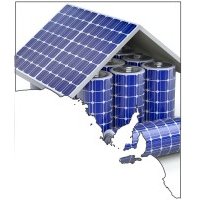In the wake of devastating storms that blacked out the entire state, the Greens are pushing their proposed battery incentives as a way to boost energy security.
Households and businesses are continuing to clean up and count the costs of the storm that wreaked havoc across South Australia. In some places, the crisis is still unfolding.
Among the damage is food spoilage resulting from the blackout – the amount of food discarded would be truly horrifying.
The Greens say that moving forward, battery storage needs to be strongly encouraged in the state and throughout Australia.
“Bringing a battery boom to South Australia will give households and small businesses the energy security that they need,” said SA Greens senator, Sarah Hanson-Young
“Renewable energy coupled with battery storage is the future and will help to keep energy demand sustainable while bringing much needed jobs to our state.”
Announced in May this year, the Greens’ battery subsidy policy is in the form of a tax credit; up to a maximum of $5,000. The party also proposes a Low Income Solar Storage (LISS) grant of up to $5,000.
The Greens estimate up to 1.2 million households across Australia would take advantage of the subsidy if it was implemented. Funding for the scheme would come from redirecting money from fossil fuel tax breaks.
There is significant government support for battery storage appearing around the world, but government-backed battery subsidies, rebates and other incentives are a little thin on the ground at present in Australia.
However, small businesses across the country may be able to claim a 100% tax deduction in the same financial year as purchasing an energy storage system through accelerated depreciation. In South Australia specifically, households and small businesses in Adelaide’s CBD can take advantage of up to $5,000 in grants for energy storage, along with up to $5,000 to install solar panels.
While batteries are certainly a great way to make the most of the high value electricity generated by solar power systems, not just any battery system is suitable for a blackout in a scenario where the building is connected to the mains grid.
Bearing in mind that Australia’s electricity infrastructure is generally reliable and blackouts usually short-lived, the additional cost of a backup power feature needs to be carefully weighed against the benefits in each circumstance.
Top Right Image Credit: BigStock

















































